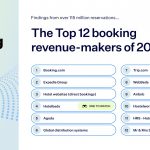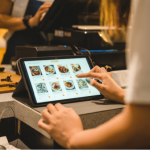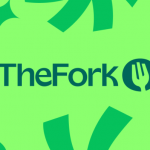Data analytics is the process of examining data sets to search for patterns, draw conclusions, support decision-making, and predict future trends.
NB: This is an article from Cloudbeds, one of our Expert Partners
By data, we mean facts and information, which, more often than not, come in digital and numeric format. In the hospitality industry, the shift to online trip planning and digital communications has created immense amounts of data.
Subscribe to our weekly newsletter and stay up to date
Everywhere travelers go during their guest journey, from OTAs to check-in to post-stay surveys, they leave digital footprints that hotels can use as clues to better understand their target demographics and deliver a better customer experience.
How important is data analytics in the hospitality industry?
Data has become so important it’s sometimes referred to as digital gold. Unlike gold, however, data isn’t rare or scarce. In fact, it’s so abundant we sometimes don’t know what to do with it. To be useful, data needs to be organized, filtered, and cleansed. Thorough data analysis can provide hoteliers with vital business intelligence to help make better decisions for their property.
Personal customer data in guest profiles and payment transactions also need to be stored and used securely, not only because guests expect it but also because many jurisdictions are governed by strict data privacy and security laws. A data breach can cause huge headaches for hotels and erode trust with travelers.
Cutting through the clutter with hotel key performance indicators (KPIs)
To avoid being overwhelmed by data overload, hotel management focuses on key performance indicators (KPIs). These are the metrics used to evaluate progress toward achieving the property’s most important objectives. KPIs are used to compare or benchmark performance against historical data, against competitors and similar properties, and against the local market or industry-wide averages. In addition to overall KPIs, properties have departmental KPIs. For example, an overall KPI is gross operating profit (GOP), whereas a KPI for the housekeeping department is average room cleaning time.
Benefits of data analytics in hospitality
Data analytics have all sorts of applications in the lodging industry, chief among them is finding ways to increase revenue, save costs, streamline hotel operations, and improve guest satisfaction. Here are just a few examples of how hotels can use data to improve performance:
Understand changes to traveler preferences to serve your customer base betterExamine previous booking patterns to help increase future occupancy ratesCompare pricing with competitors to develop an effective pricing strategyAnalyze guest spending behavior to identify your most profitable segmentsCompare labor costs with review ratings to identify optimal staffing levels
Read rest of the article at Cloudbeds
The post How to Use Data Analytics to Improve Your Hotel Performance appeared first on Revenue Hub.































